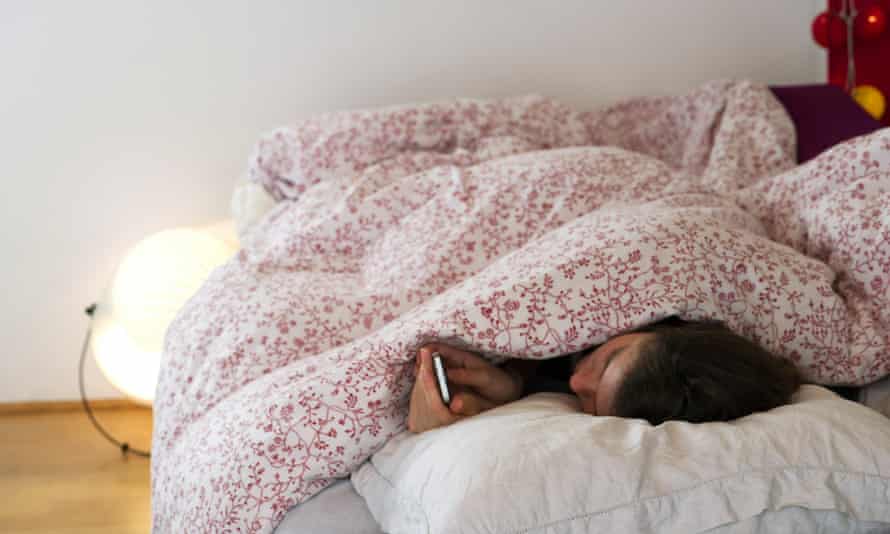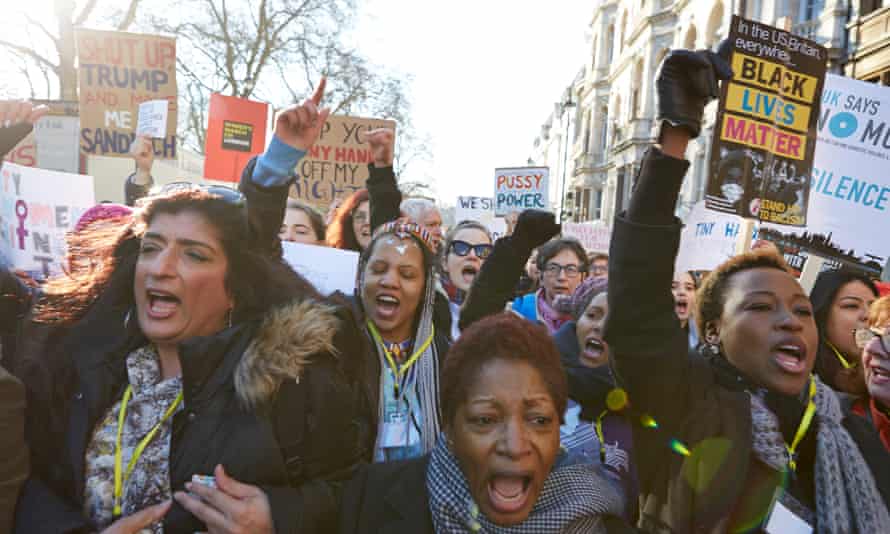I Know How to Keep a Dumbass Bisy Like You Post
In Jan I deleted all the social media apps from my phone because they were turning me into an idiot.
For months I'd been avoiding engaging with anything challenging or anxiety inducing. Worried about where I'd be living next year? Swoop into Instagram. Tax neb prickling at the back of my mind? Open Facebook. That grief I thought I'd processed piercing at me over again? Disappear into the realm of likes and follows and push button the feelings away. Distract. Binge. Escape.
Whether it was the Pavlovian thrill of the niggling red circles of like notifications, or a genuine demand to connect with others, at that place was something that kept me – along with one.86bn other active monthly Facebook users – going back. With social apps and so accessible on my smartphone, this had turned into compulsive checking. Statistica research shows that 47% of UK adults use social media every solar day, and a GlobalWebIndex written report constitute that at the cease of last twelvemonth people were spending a global average of nearly 2 hours a day on social and messaging networks. I was one of them.
Hours of my evenings, train journeys and lunchtimes were spent hopping from 1 app to another, cruising for attention in the form of likes. I'd open Facebook, then Instagram, so Messenger, and in the time information technology had taken me to look at the latter two at that place was a chance that something might have happened on Facebook. So back I'd become and open it again. Then Instagram. Then Messenger. The bicycle would continue. It was annoying the hell out of me.
It wasn't even meaningful attending I was seeking – if social media wasn't forthcoming, I'd dip into piece of work electronic mail, or even my banking app, in the promise of finding something new in that location. I just craved something – anything – in the grade of a new notification. I felt like a frantic lab rat waiting to hear a bong ring.
Daniel Gerrard, family interventionist and founder of Addiction Helper, believes that social media addiction is a process habit that is like to gambling: "The more you do it, the more than y'all want to do it, and the more y'all block out the outside world. And so whether you win or lose, you still get that high feeling. And the more you practice it, the more you cake out what'south going on."
I didn't think I had an addiction, just potent habits. I could, however, understand the pull of social media every bit an escape from the real world.
So I went make clean. I took them all off my phone. I'd yet use social media on computers, only I wanted to make certain it wasn't always with me every second and everywhere.
Liberty
With my apps gone, I realised that I was feeling bad more than frequently than I'd thought. All of a sudden I had to bargain with tricky emotions. I would prevarication on the bed in the evenings with racing thoughts, making worry lists to try and slow down the anxiety. It affected my human relationship: I would offload on to my boyfriend, and ask for more reassurance about niggling thoughts. I'd come home in the evenings and sit downwardly on the sofa, thinking I didn't quite have the energy to read a book or watch a film. So I'd achieve for my phone, so realise at that place was no plaything there, and wonder what I was going to do with the half hour I had to kill.

I could have fired up the laptop and logged on to Facebook there, but in the fourth dimension it took to go and get information technology, I realised the silly comments I was going to stick upwards were pointless, and weren't a good use of my time. Worse all the same: the try involved fabricated me cocky-conscious – choosing to dive downwardly a digital rabbit hole in order to be mindless didn't seem similar a skillful choice to be making in my thirties.
It would exist a smashing narrative if I could say that later on initially struggling with stepping away from digital frivolity, the clouds quickly cleared and it made me more than functional. But it wasn't that simple.
Being more proactive gave me a greater sense of control and conviction in my ability to overcome small obstacles. Just I too missed the control the apps gave me over my mood. Some research has indicated that some of the success of social networking sites is down to how they make you feel. An academic paper by Mauri et al showed in 2011 that the experience of Facebook was different to a state of either stress or relaxation, just that it had its own unique cadre period country. While outright avoiding problems isn't necessarily a sensible way to arroyo life, making time to feel good is – and to some degree social apps gave me more control over my immediate mood.
Time-wasting
One way heavy social app employ unambiguously crapped all over my feelings, however, was with the guilt that came with the time-wasting. Studies past Christina Sagioglou and Tobias Greitemeyer in 2014 suggested that using Facebook tin can lead to low moods afterwards, and a feeling that yous oasis't spent your fourth dimension doing anything meaningful. In my example this was painfully true. I hadn't sorted my living organization, I'd lost touch with friends, I'd neglected hobbies, I was going out less than I used to. I hadn't read a book in six months. I'd become a mental slob. This wasn't all down to social use, but it was eating up a lot of my fourth dimension.
Dr Ciarán McMahon, a Dublin-based academic writing a volume on psychology and social media, commented that this sense of time-wasting is a problem for Facebook: "They practise want you to stay at that place the whole time, but it tin make you experience similar you've achieved nothing. Information technology'southward quite a pleasant feeling, a menses country reasonably similar to reading a book. But afterwards reading a book you can say you've read twenty pages, but if y'all spend the same hour on Facebook, you have no sense of achievement."
After I deleted Facebook, Twitter and Instagram from my phone, I was alarmed at the corporeality of free time that suddenly emerged. I used to call back I was manner too busy to read these days. But inside a month I'd read two novels and listened to an audio book – all in the free time when I'd otherwise take been prowling around social apps looking for validation. If I'd made this modify in, say, June, I could accept read the whole of the Homo Booker shortlist, plus fourteen other novels. In the moments earlier bed, while waiting for my swain to cease brushing his teeth, rather than checking Instagram, I put a drawing pad and pencil on my bedside table to sketch out photograph ideas.
Beyond this, I also found that in moments of boredom, I'd text or email friends or relatives I hadn't spoken to for a while. I fifty-fifty phoned some people for a grab up, which felt weird at first. The demand to socially collaborate, which tin be difficult in a big city, was no longer taken care of through a passive screen presence. If I wanted to see how someone was, I'd take to actively get in touch on and find out. It felt a lot more meaningful, especially with older relatives, who were probably on the aforementioned page – on social media, but not on it compulsively with a smartphone app.
Falling back in
Part of the reward of social media is the sense that you lot are important. "You can exist lonely in your house but have a million Facebook or Instagram friends – it tin put y'all in a false reality," Gerrard says. Without this fake reality, I was living in the present, and gone was the feeling I was haemorrhaging life through my fingertips. Learning, creating, communicating meaningfully felt more wholesome than the egotistic cesspit of selfies, likes, followers and favourites. So why did I become back?

When I went on the Women'southward March at the end of Jan I wanted desperately to connect with other people – friends or strangers – who were also present, felt the same and shared the same values me. The almost immediate way of doing that was to redownload the apps and search and share. Then I did. Social media wasn't simply liking someone'south cat photograph – it was a way for millions of people to communicate where they stood politically. I'd too missed Facebook and Twitter as instantly attainable means of looking at multiple news sources, which, in the age of Trump and Brexit, felt like something I shouldn't do without.
I would similar to say that, the wheel broken, I let the apps back into my life but just to utilise occasionally, for wholesome purposes, while continuing to nurture offline relationships and reading lots more.
Simply it's hard to manage the pull of compulsive checking. Unlike other bad habits, or addictions, abstinence isn't really an selection – piece of work, news and socialising are now contingent on this technology.
Two months on, things are … complicated. Information technology hasn't been quite the same betwixt me and the apps since the large pause. But simply like returning to an ex lover, it's easy to fall dorsum into the same sometime dynamics. I savour being connected, but coincidental use soon can hands become compulsive checking, and when I catch this happening, I get nuclear and delete them. Simply then I'll be out and want to mail a pic on Instagram, or bank check if anyone'southward tried to contact me, and then I'll redownload. And the cycle continues.
I'1000 not sure whether this ritual is any more functional than what I was doing before. It's disconcertingly like shooting fish in a barrel to leave when you know yous can go back whenever you want. I practise observe more quickly when I'm wasting time, however. I get more done, and I feel less like a 31-year-quondam teenager. And withal it worries me how easy information technology is to fall into the trap. It worries me that these networks encompassing everyone I know provide empty, addictive rewards for pointless behaviour. And it worries me that equally long as I have a phone in my pocket, that scrolling idiot I'm capable of being is merely e'er a few clicks away.
- The five lessons I learned from breaking my smartphone
douglaspethilkiled.blogspot.com
Source: https://www.theguardian.com/technology/2017/mar/14/deleted-social-media-apps-facebook-instagram-emotions-likes
0 Response to "I Know How to Keep a Dumbass Bisy Like You Post"
Post a Comment